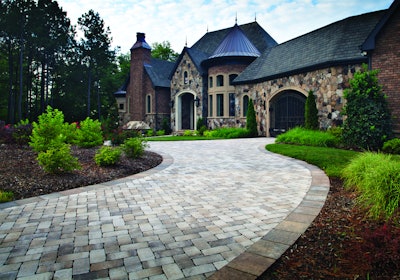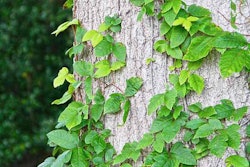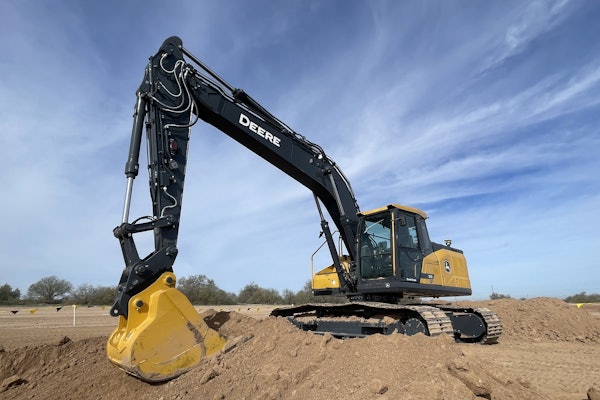 Photo: Belgard
Photo: BelgardAs sustainability becomes a ubiquitous word related to current landscaping trends, one of the examples often highlighted is permeable pavers.
If your client is curious about the benefits of permeable pavers and pavement and wants to know more about this particular type of hardscaping, you can share these points below.
Replenishes groundwater
Unlike on traditional forms of pavement, where stormwater will accumulate and eventually run off into storm drains and make its way to a stream or river, permeable pavers allow rain to slowly seep into the soil and replenish the groundwater below.
“With permeable pavements, almost 100 percent of the water will filter through the pavers themselves into the substrate, allowing the water to eventually seep back into the local aquifer,” says Joe Raboine, director of residential hardscapes with Belgard.
Water filtration
As the water percolates through the pavers it also helps reduce the concentration of materials like oil and gas in several different ways. It can physically trap some of the pollutants in the pavement or soil. Plants that grow in-between some pavers can trap and store toxins.
Pollutants can be also broken down by bacteria and other microbes that grow within the aggregate underneath the pavers. This allows clarified water to return to the aquifers as they are restocked.
“Additionally, permeable surfaces benefit areas that have sensitive waterways, such as Philadelphia and the Chesapeake Bay area,” Raboine says. “In many sensitive areas, storm sewers are not always routed to treatment plants, so the area’s water sources are refilled with untreated water. There is an immense need and benefit for the use of permeable pavement in areas experiencing these issues. Permeable pavement allows for water to be treated and clarified of nonpoint pollution and toxins that would otherwise be almost impossible to treat.”
Reduced need for road salt
According to researchers at the University of New Hampshire, permeable asphalt only needs zero to 25 percent of the salt routinely applied to normal asphalt. Another benefit of permeable pavers in cold weather is that air trapped in the pavement allows it to store heat, which is released to the surface causing it to melt and thaw snow and ice.
Due to the fact that standing water cannot collect on porous pavements, black ice is far less likely to form and the need for deicer is reduced.
No need for water collection areas
Controlling runoff at the source allows for commercial projects to eliminate the need for or reduce the size of a water collection area due to government ordinances. By simply installing permeable pavers instead in parking lots, courtyards and more, projects can save valuable acreage that would have been set aside for retention basins.
“Contractors can set themselves apart, by offering permeable pavers for their landscape projects,” Raboine says. “Permeable pavers can be installed on driveways, walkways, pool decks and patios. The style options range from contemporary to traditional, and once installed, don’t look much different than a standard paver. Permeable pavers are a beautiful option, and will continue to grow in popularity as local ordinances change, and as people become more environmentally aware of their impact.”









